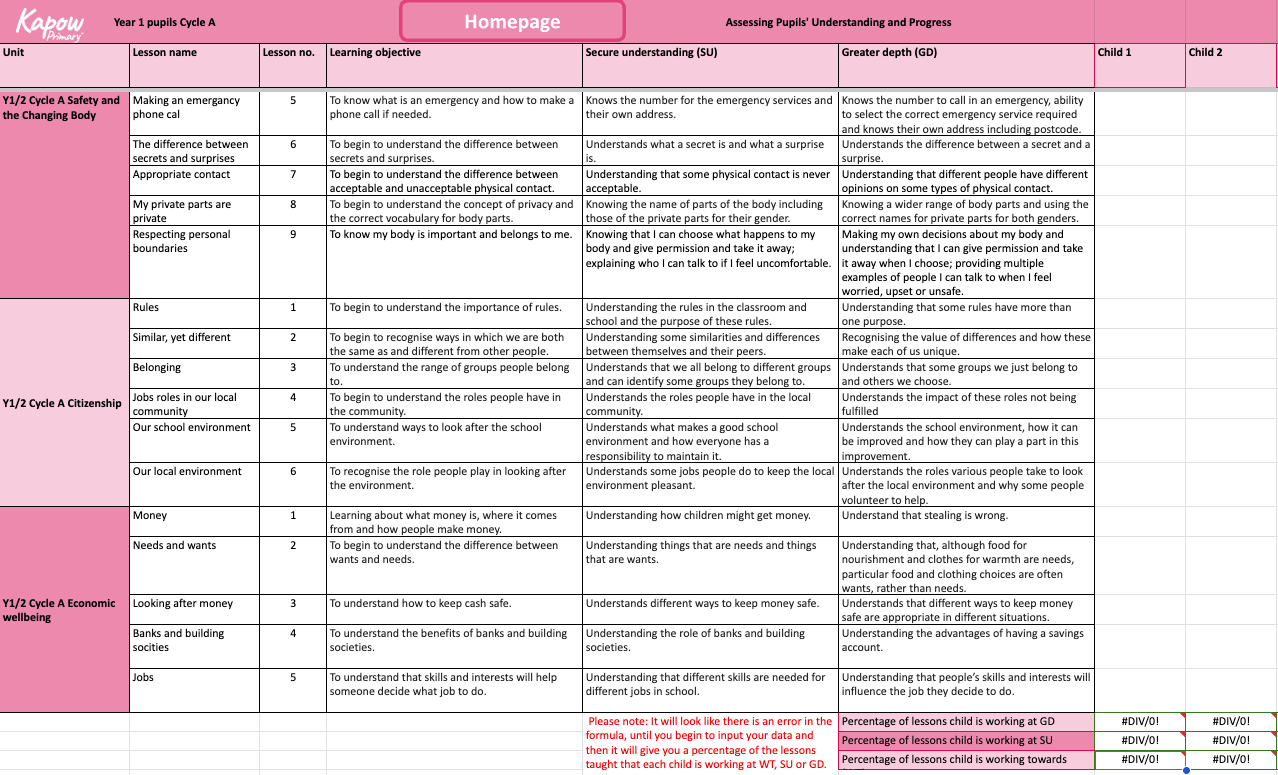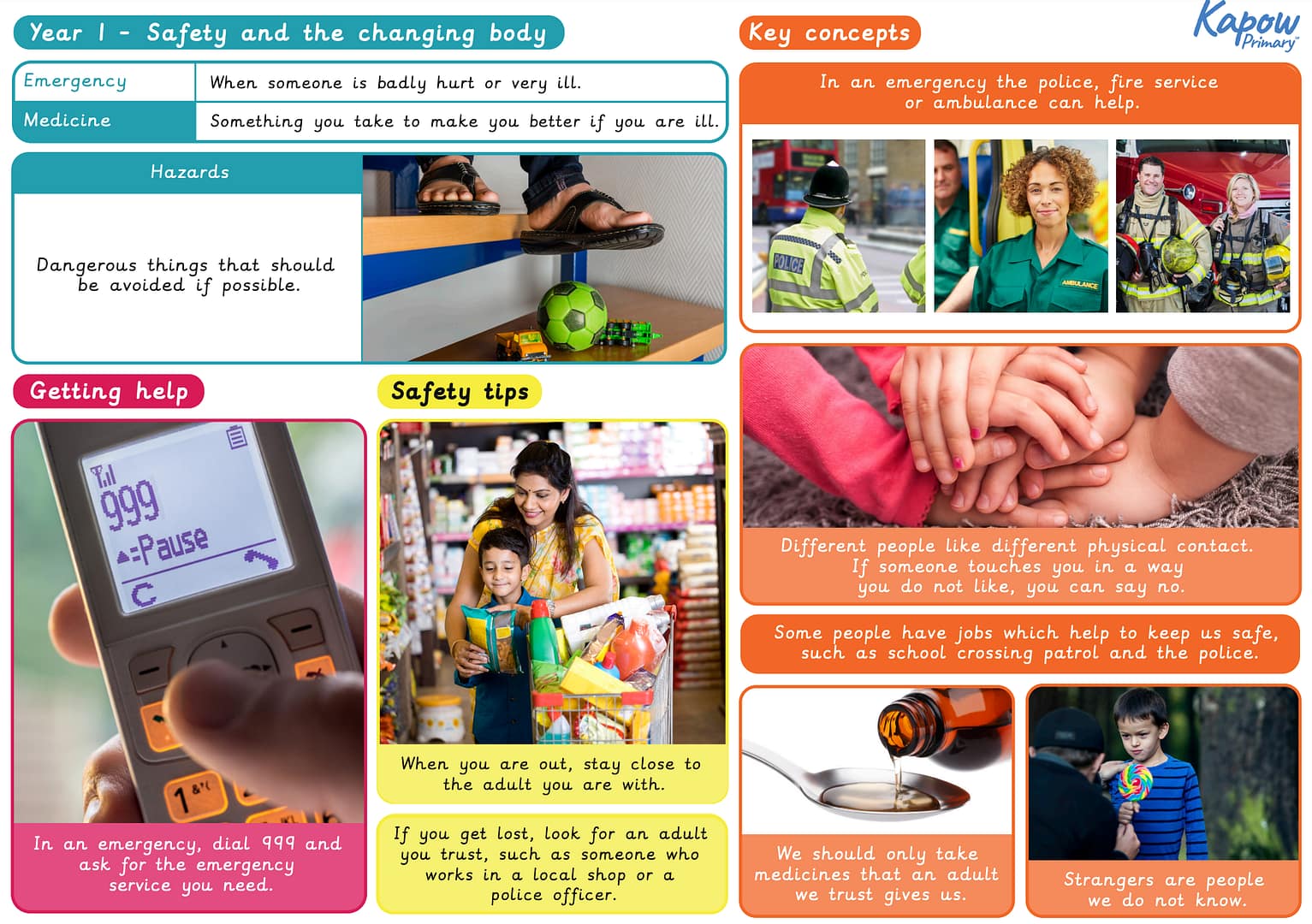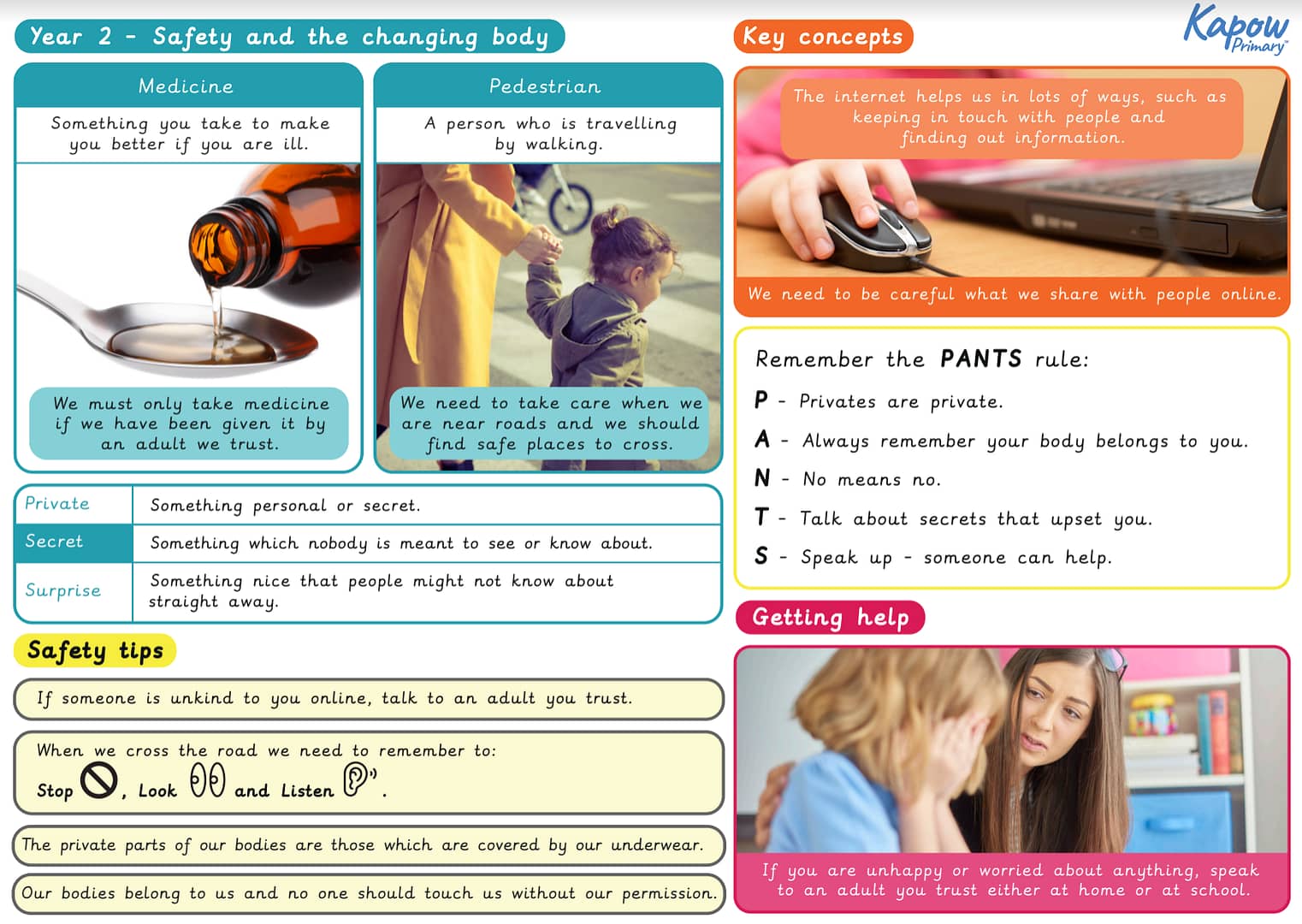Y1/2 (A): Safety and the changing body
Learning how to communicate safely with adults; considering who keeps us safe in our community; learning steps to crossing the road safely; identifying which substances should or should not go in the body; learning how to call 999; knowing the difference between secrets and surprises; learning about appropriate and inappropriate contact
- Subjects >
- RSE & PSHE >
- Mixed-age >
-
Y1/2 (A): Safety and the changing body
Unit outcomes
Pupils who are secure will be able to:
- Know that they should speak to an adult if they are ever worried or feel uncomfortable about another adult. Knowing that a stranger is simply anyone you don’t know.
- Know how to move politely out of a situation that makes them feel uncomfortable and to tell an adult they trust right away.
- Understand that people do jobs that help keep us safe and what some of those jobs are.
- Understand how we can help people to keep us safe by behaving in an appropriate way.
- Understand how to keep safe near roads.
- Understand how to cross the road carefully with an adult.
- Understand what goes into or onto the body.
- Know when to check about substances with an adult.
- Know the number for the emergency services and know their own address.
- Know the number to call in an emergency, can select the correct emergency service required and know their own address including postcode.
- Understand what a secret is and what a surprise is.
- Understand the difference between a secret and a surprise.
- Understanding that some physical contact is never acceptable.
- Understanding that physical contact that is acceptable with someone who is close to you may be unacceptable with a stranger.
- Know the name of parts of the body including those of the private parts for their gender.
- Know the people and organisations we can go to for help if we are concerned about something.
- Know that I can choose what happens to my body and give permission and take it away; explaining who I can talk to if I feel uncomfortable.
Suggested prior learning
Y1/2 (A): Health and wellbeing
Get startedLessons
Y1/2 (A): Lesson 1: Communicating with adults
Y1/2 (A): Lesson 2: People who help to keep us safe in our local community
Y1/2 (A): Lesson 3: Road safety
Y1/2 (A): Lesson 4: Safety with medicines
Y1/2 (A): Lesson 5: Making a call to the emergency services
Y1/2 (A): Lesson 6: The difference between secrets and surprises
Y1/2 (A): Lesson 7: Appropriate contact
Y1/2 (A): Lesson 8: My private parts are private
Y1/2 (A): Lesson 9: Respecting personal boundaries
Key skills
Key knowledge
Related content
Unit resources

RSE and PSHE: Assessment spreadsheet — mixed-age
An assessment spreadsheet to record teacher assessments - aimed at those following our mixed-age curriculum.

Knowledge organiser: RSE & PSHE – Y1 Safety and the changing body
Aimed at pupils, a single page which gives key facts and definitions from the unit "Y1 Safety and the changing…

Knowledge organiser: RSE & PSHE – Y2 Safety and the changing body
Aimed at pupils, a single page which gives key facts and definitions from the unit "Y2 Safety and the changing…
Cross-curricular opportunities
English: Spoken language
Pupils should be taught to:
- listen and respond appropriately to adults and their peers
- participate in discussions, presentations, performances, role play, improvisations and debates
English: Writing – composition
Pupils should be taught to
Write sentences by:
- saying out loud what they are going to write about
- composing a sentence orally before writing it
Art & Design
Pupils should be taught:
- to use drawing, painting and sculpture to develop and share their ideas, experiences and imagination
Science
Pupils should be taught to
- identify, name, draw and label the basic parts of the human body and say which part of the body is associated with each sense
British values
- Individual liberty
- Mutual respect

